I normally spend my time teaching between two junior high schools, but a couple times a month, I'll teach at a local elementary school for a day. Today was my first visit to this particular school and it certainly had its highlights.
1. I had a full-on, real conversation in Japanese with the woman sitting across from my desk in the teachers' room. And at one point she told me my Japanese was "awesome." Usually, when people tell me my Japanese is awesome, I don't take them seriously because it's typically after I say something simple and stupid like "thank you" in Japanese. And then everyone's all like "wow you speak great Japanese!!" and then they'll say something else and I won't understand it and I feel like a tool. I used to not know what people were even saying when they were telling me my Japanese was awesome. Can you imagine? Having someone tell you you're great at speaking a language and then you don't even understand what they're saying? Freaking tool of the century. But anyhow, today was different. We were making jokes together, too. I think being able to joke around in another language is harder than it sounds. I spent much of the rest of the day not understanding tons of things that people would say to me, but it didn't matter. I was glad to have had that conversation.
2. Most of the elementary school kids I teach really look like little kids, but then there's always that tall awkward one that's starting to grow facial hair and barely fits in the desk. Come to think of it, I'm pretty sure that was me growing up. Minus the facial hair.
3. Two kids asked me what my bra cup size was today. (Yeah, really....). One actually tried to cop a feel and at first I felt really awkward about it and then I laughed that he's going through puberty THAT BAD that he just grabs boobs whenever he sees them. Man....
4. One of my students today was a super cute baby-faced 6th grader...with hairy legs. I don't know why but it just felt weird to look at his legs...like he was half man half child.
5. I think seeing twins is always cute. I especially like them when they're little kids because they still look exactly the same. Neither of them has tried to change their hairstyle or fashion sense or anything to try and look different from the other one just yet. They just look identical and it's freaking cute as hell.
The end<3
M
Wednesday, October 26, 2011
Monday, October 24, 2011
Some Positives About Japan's Education System
After three months here, I'm starting to gain a better understanding of Japan's educational system, at least in junior high schools and somewhat in elementary schools. These are just a few quick thoughts about what I've appreciated so far. And as a bit of background, I work primarily at two junior high schools, one with 75 students and about 15 teachers, and the other with 400 students and 35 teachers. I also do one-day visits to elementary schools 2-3 times a month.
1. Every student is part of a homeroom. They stay with this same group of students for the entire day, in the same classroom. At first, I didn't really like this concept because I wondered how they'd make friends with the rest of the school or perhaps they'd get bored more easily by not moving around enough. But now I see it as more of a positive. Students have so much pride for their homeroom group and there are several competitions throughout the year where each homeroom is a team. Also, being with the same students all day gives the students the ability to figure out each other's personalities, learning styles, etc so that they can mold together and find each other's strengths. Also, I feel like in American schools, students who move to a new classroom each period have to take a few minutes to "warm up" to the classroom, teacher, and all the new faces in their class each day since their surroundings change every hour or so. But in Japan, they've already warmed up to all the students in the morning, so maybe it's easier to learn throughout the day because their setting is consistent. Lastly, each homeroom has one homeroom teacher that they see for "homeroom" time in the beginning and end of the day. This teacher seems to become their friend and sometimes like a mother/father/mentor to the students.
2. School festivals. To quickly compare America and Japan, I think America is much more individualistic and pushes its students to do things on their own, rather than babying them along. I don't think Japan "babies" its students, but I do think there are more places and people to fall back on if you can't do everything yourself. Anyways, something that I think allows students to not only build up their individual strengths, but combine them with the strong efforts of a team and shared vision, are school festivals. It's kind of hard for me to describe them to an American reader, because we really don't have anything quite equivalent to them at home. But they're basically a two day festival with the first day being only for the students/teachers and more like a formal rehearsal and the second day being the actual festival that parents and the community can attend. There is chorus singing by each homeroom and the whole student body, brass band performances, speeches from students, tons of student crafts and things being sold, tons of student art and work on display, and a "restaurant" type thing during lunch time where students' classrooms are turned into dining rooms and students serve food and bus tables for all their guests. The festivals are usually from about 9am-3pm with something going on almost all day. Together, they spend weeks preparing for their festivals and they are largely orchestrated by the students, rather than the teachers. I feel like it gives them a huge opportunity to work together as a team, get creative, and see the amazing things they can accomplish if they wanted to.
3. Every student (at least at both of my schools) is mandated to join a club activity (i.e. a sport, art club, brass band, etc). At first, I also wasn't too sure about this. What if they can't afford it? What if they don't like the selection of clubs? (At my small school, their only options are baseball, volleyball, tennis, or brass band, I think). But now, I like this aspect of school life. In a way, it forces the students to become connected to the school. I think I was apprehensive of this idea at first, as an American, because I really appreciate autonomy and felt that this somewhat violated one's free will. But then I think about American schools where I'd estimate that at least 50% of students aren't involved in anything and have no reason to feel pride for their school or the work they do at school. If you don't have pride for your school, then why would you feel motivated to do your best work there? I think that the connections Japanese schools try to create right away give students the ability to want to succeed at school.
I know there are other things I'm forgetting, but I'll save them for another post! :)
1. Every student is part of a homeroom. They stay with this same group of students for the entire day, in the same classroom. At first, I didn't really like this concept because I wondered how they'd make friends with the rest of the school or perhaps they'd get bored more easily by not moving around enough. But now I see it as more of a positive. Students have so much pride for their homeroom group and there are several competitions throughout the year where each homeroom is a team. Also, being with the same students all day gives the students the ability to figure out each other's personalities, learning styles, etc so that they can mold together and find each other's strengths. Also, I feel like in American schools, students who move to a new classroom each period have to take a few minutes to "warm up" to the classroom, teacher, and all the new faces in their class each day since their surroundings change every hour or so. But in Japan, they've already warmed up to all the students in the morning, so maybe it's easier to learn throughout the day because their setting is consistent. Lastly, each homeroom has one homeroom teacher that they see for "homeroom" time in the beginning and end of the day. This teacher seems to become their friend and sometimes like a mother/father/mentor to the students.
2. School festivals. To quickly compare America and Japan, I think America is much more individualistic and pushes its students to do things on their own, rather than babying them along. I don't think Japan "babies" its students, but I do think there are more places and people to fall back on if you can't do everything yourself. Anyways, something that I think allows students to not only build up their individual strengths, but combine them with the strong efforts of a team and shared vision, are school festivals. It's kind of hard for me to describe them to an American reader, because we really don't have anything quite equivalent to them at home. But they're basically a two day festival with the first day being only for the students/teachers and more like a formal rehearsal and the second day being the actual festival that parents and the community can attend. There is chorus singing by each homeroom and the whole student body, brass band performances, speeches from students, tons of student crafts and things being sold, tons of student art and work on display, and a "restaurant" type thing during lunch time where students' classrooms are turned into dining rooms and students serve food and bus tables for all their guests. The festivals are usually from about 9am-3pm with something going on almost all day. Together, they spend weeks preparing for their festivals and they are largely orchestrated by the students, rather than the teachers. I feel like it gives them a huge opportunity to work together as a team, get creative, and see the amazing things they can accomplish if they wanted to.
3. Every student (at least at both of my schools) is mandated to join a club activity (i.e. a sport, art club, brass band, etc). At first, I also wasn't too sure about this. What if they can't afford it? What if they don't like the selection of clubs? (At my small school, their only options are baseball, volleyball, tennis, or brass band, I think). But now, I like this aspect of school life. In a way, it forces the students to become connected to the school. I think I was apprehensive of this idea at first, as an American, because I really appreciate autonomy and felt that this somewhat violated one's free will. But then I think about American schools where I'd estimate that at least 50% of students aren't involved in anything and have no reason to feel pride for their school or the work they do at school. If you don't have pride for your school, then why would you feel motivated to do your best work there? I think that the connections Japanese schools try to create right away give students the ability to want to succeed at school.
I know there are other things I'm forgetting, but I'll save them for another post! :)
Wednesday, October 19, 2011
Born Again
I don't know if everyone has the new Facebook timeline yet or not, but my profile does. On the right side of your profile, you now have the ability to pick which year of your Facebook existence you want to jump to and explore. Mine goes all the way back to year 2005, which is kind of a trip to think about...I've had a facebook for almost 7 years...almost a third of my life. But below my last date of "2005," it says "born" and gives you the option to click it. If you do click it, it scrolls aaaall the way down past every other year to a little screen that just says your birthday.
I think this "born" function is kind of interesting. It doesn't really serve a purpose on your profile...as in, it doesn't show you your first status update or first profile picture or first friend or anything else you might associate with being "born" on Facebook. It just says your birthday. This makes me feel two things...one, that Facebook only put that little button there to remind us that we were once born into Facebook as a sort of rebirth into our virtual selves (which we are now wholly consumed by), and two, since this button only takes you to a screen with your birthday, perhaps being born on Facebook is synonymous with being born into the actual world. Kind of gives me an eerie feeling.
I think this "born" function is kind of interesting. It doesn't really serve a purpose on your profile...as in, it doesn't show you your first status update or first profile picture or first friend or anything else you might associate with being "born" on Facebook. It just says your birthday. This makes me feel two things...one, that Facebook only put that little button there to remind us that we were once born into Facebook as a sort of rebirth into our virtual selves (which we are now wholly consumed by), and two, since this button only takes you to a screen with your birthday, perhaps being born on Facebook is synonymous with being born into the actual world. Kind of gives me an eerie feeling.
Friday, October 14, 2011
Three Little Birds and Recent Adventures
Man...I've been to and seen some really amazing things lately. A part of me wants to explain them all here, but then I think that takes away a bit of what you get out of looking at the pictures. This time, I'd rather you hear my stories from the past couple weeks visually...with a little sprinkle of my thoughts on the side. Enjoy. :)
Camera: Nikon EM
Film Used: Fujicolor Pro 400H
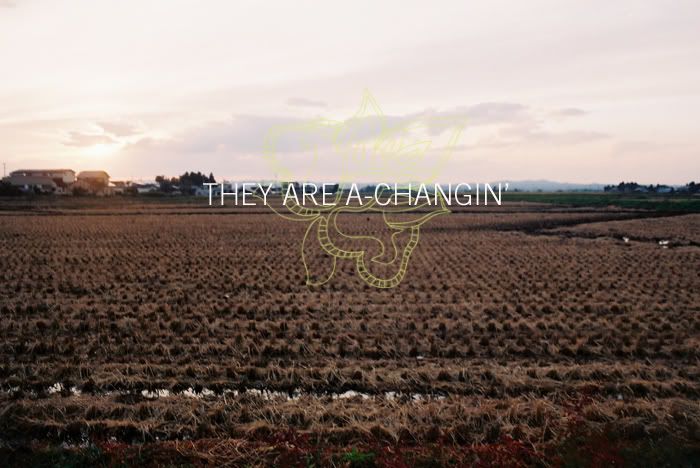
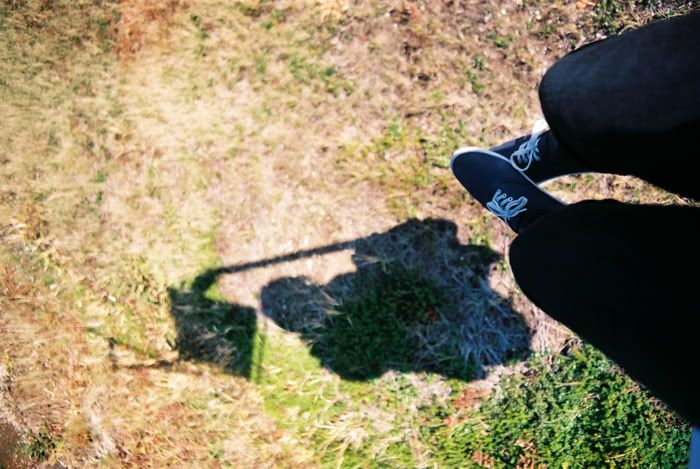

Check out how big those spiders are.
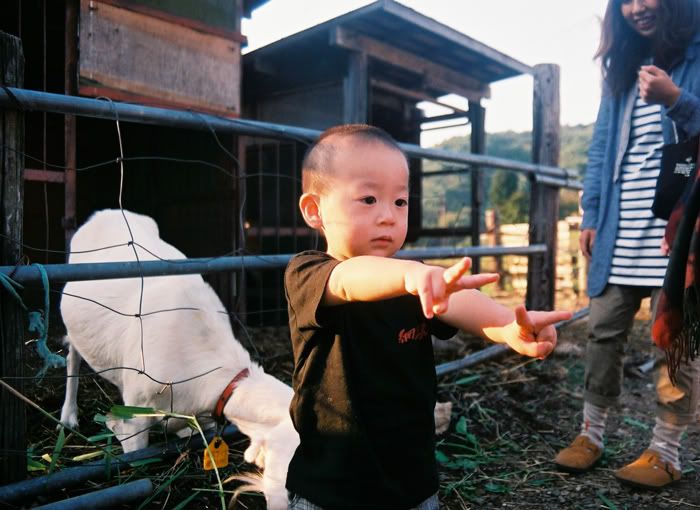
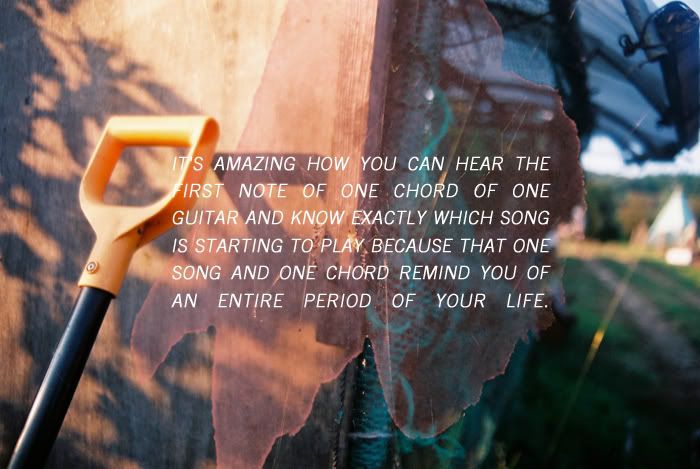
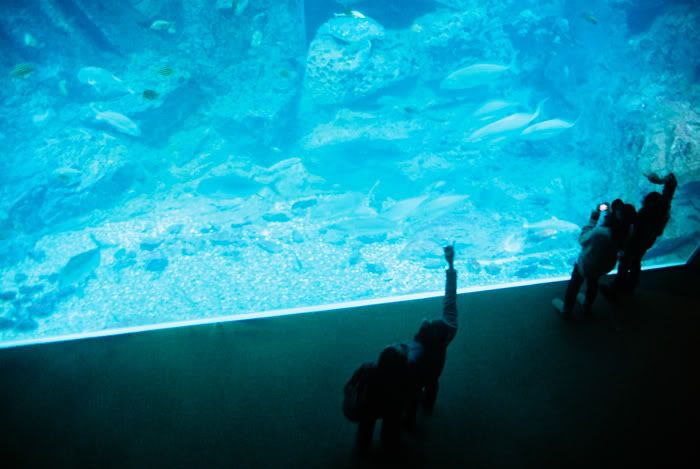
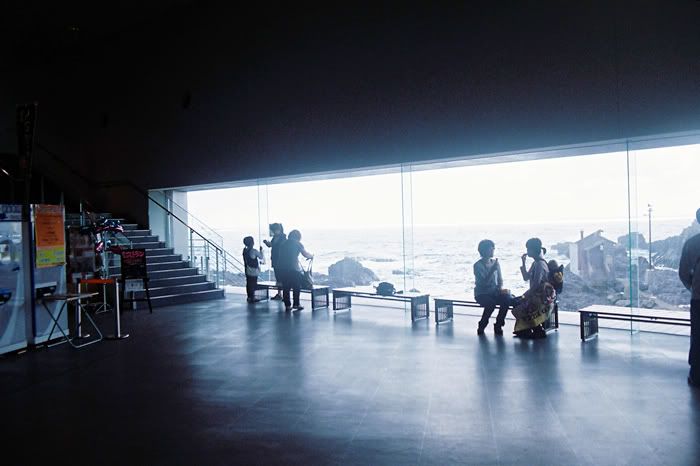
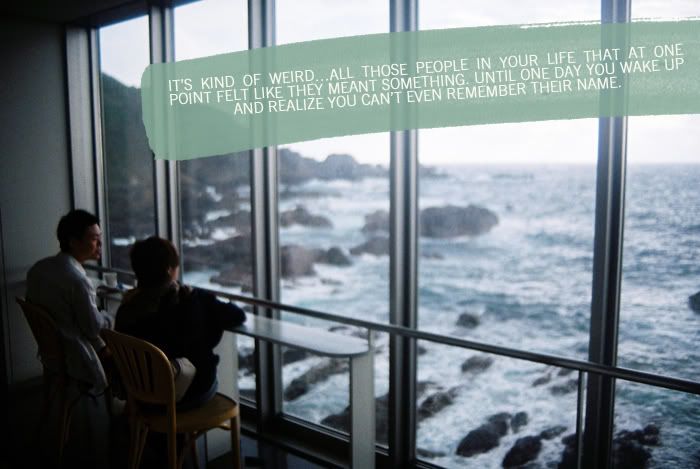

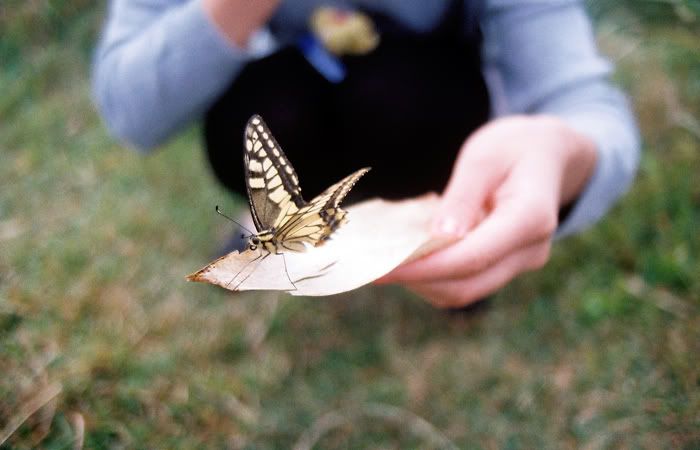
We found this butterfly on a bed of grass with what looked like an injured wing. We watched it try to fly, but with many failed attempts. While taking some pictures of it, we put it on this leaf to lift it up and see if we could help it. After a bit of time, it started hurriedly flapping its wings and soon, it took off and was flying all around us on the mountain. I really hope I never forget that moment...it was so beautiful!

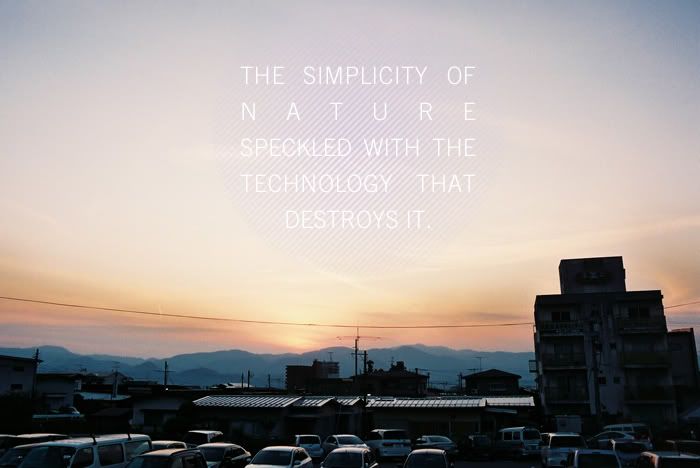
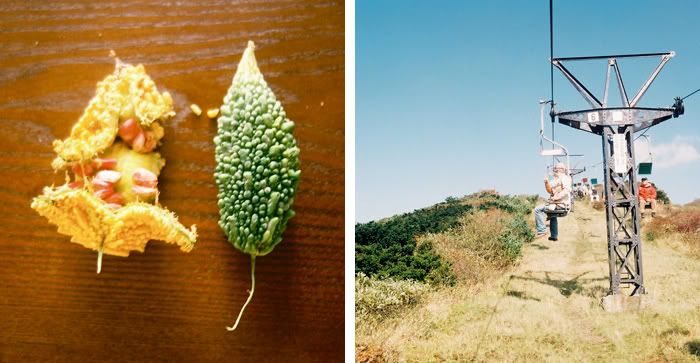
I was given those fruits (goya) by some teachers at my school. They each began as the green looking things on the left, but within a few days, they naturally split open and revealed bright red seeds inside. I never ate them because I was so intrigued by watching their transformation.






The aftermath of a penguin diving into the water.
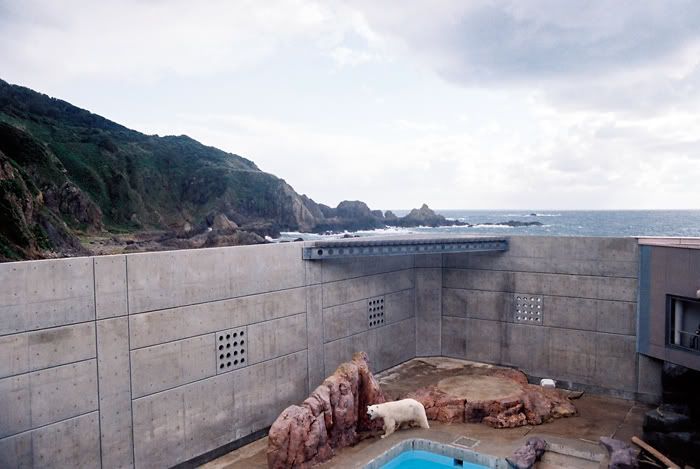
Probably the most habitats I've seen in one place...aquatic, terrestrial, and "arctic."
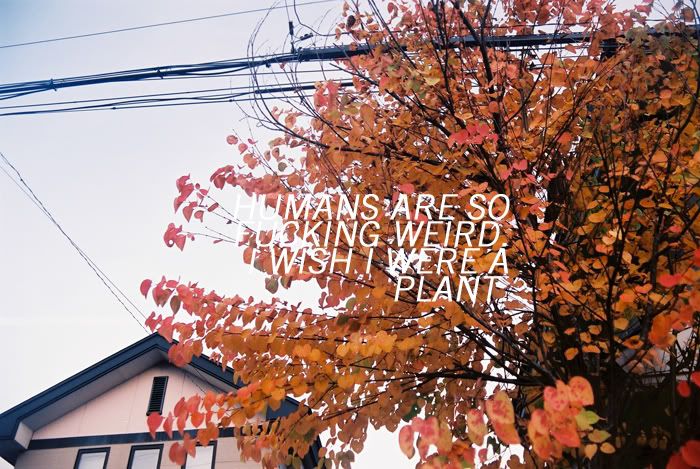

Tunnels.

Okama Crater Lake...it seriously felt like we were on another planet...or lots of drugs. So crazy.

I liked the lighting.
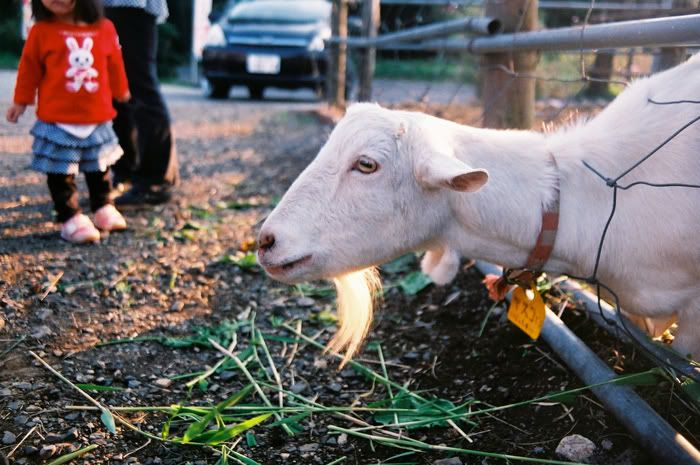
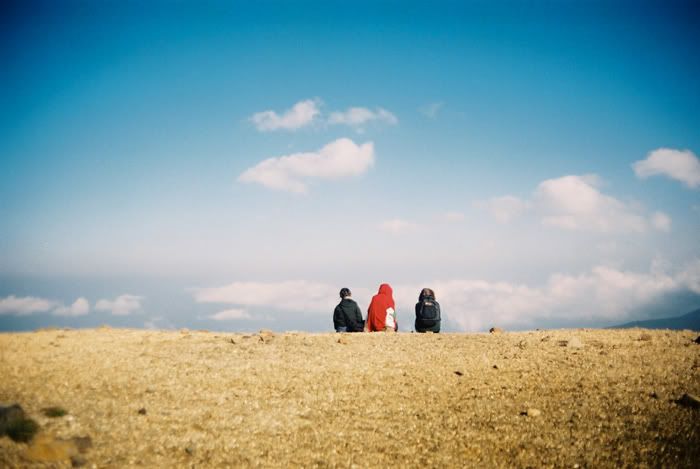
Three little birds.
Until next time,
M
Camera: Nikon EM
Film Used: Fujicolor Pro 400H



Check out how big those spiders are.







We found this butterfly on a bed of grass with what looked like an injured wing. We watched it try to fly, but with many failed attempts. While taking some pictures of it, we put it on this leaf to lift it up and see if we could help it. After a bit of time, it started hurriedly flapping its wings and soon, it took off and was flying all around us on the mountain. I really hope I never forget that moment...it was so beautiful!



I was given those fruits (goya) by some teachers at my school. They each began as the green looking things on the left, but within a few days, they naturally split open and revealed bright red seeds inside. I never ate them because I was so intrigued by watching their transformation.






The aftermath of a penguin diving into the water.

Probably the most habitats I've seen in one place...aquatic, terrestrial, and "arctic."


Tunnels.

Okama Crater Lake...it seriously felt like we were on another planet...or lots of drugs. So crazy.

I liked the lighting.


Three little birds.
Until next time,
M
Tags:
35mm,
film,
fujicolor pro 400h,
japan,
photography,
thoughts,
yokote
Subscribe to:
Comments (Atom)
